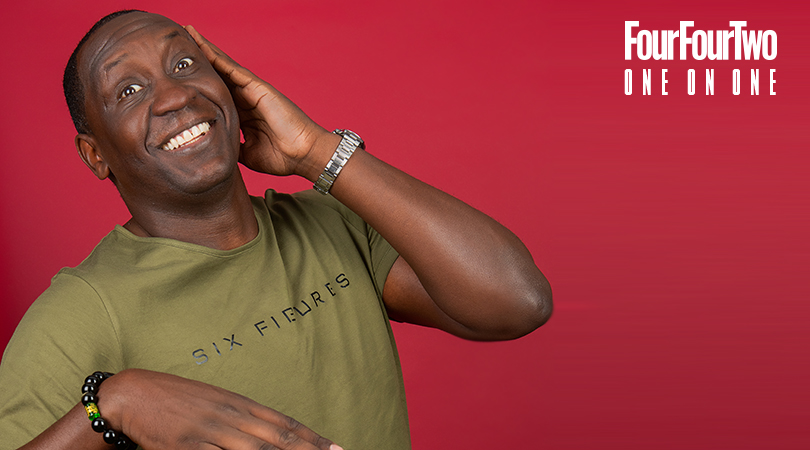
As far as boyhood ambitions go, Emile Heskey hasn’t done too badly at all. And we’re not even talking about the striker’s 22-year professional career that gave him success with his local club, major trophies at Liverpool and three tournaments with England.
Nope, FFT is wide-eyed at Heskey’s rumpus room, resplendent with pool table, air hockey, glistening bar, and adorned with the shirts of famous foes.
“Most of these aren’t even mine,” he chuckles. But the one that immediately attracts our attention is: Heskey’s very own top from England’s 5-1 trouncing of Germany in September 2001, where he rounded off the scoring on a historic night for English football. “I haven’t popped down here to play or have a drink in God knows how long, maybe just once since I moved in,” he sighs, having kindly invited us round to his Cheshire pad for a chinwag about an eventful career.
Sadly, FFT is denied the chance to pick up a cue and rack up a frame before the school run, but Heskey is perfectly happy to whir away on some imaginary decks for our snapper before grabbing a stool to answer your posers…
You’ve got a younger brother named after Rivellino, so why didn’t you get the Brazil 1970 treatment? Gareth Ruddier, Norfolk
I don’t know, to be honest. It would’ve been better to go the other way around, wouldn’t it? He likes his name, though, of course. It’s different, and there’s only one of him with that spelling! [Revelino]
You made your Leicester bow against QPR aged just 17. How did you break through so young? You must’ve been absolutely bricking it! Rob Stead, Coventry
I was the lad who travelled with the first team as a youngster, helping out with the kit. I was training with them at the time. That day, a load of players were ill and I was the only option. The gaffer, Mark McGhee, didn’t say anything until we got in the dressing room. He pinned the team up and I was like, ‘My name’s on there!’ That meant I didn’t have long enough to get nervous. It was far from my best game, but it was the beginning.
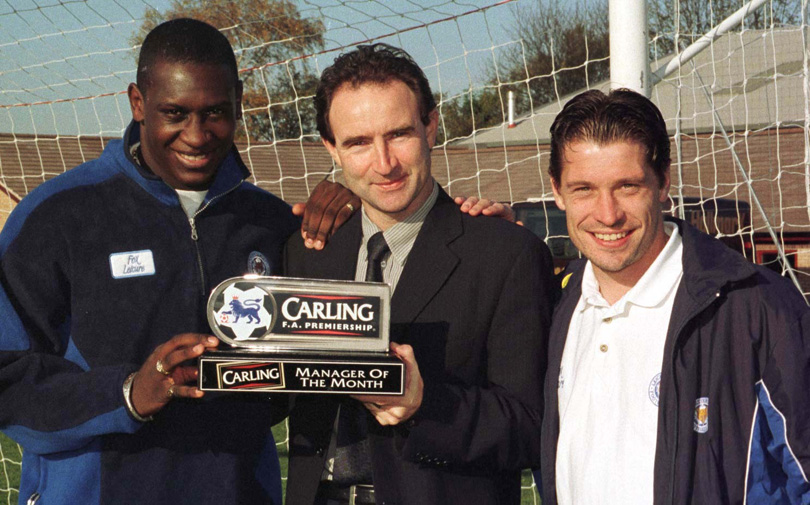
When did you get the Bruno nickname and what did you think of it? Patrick Wills, Merseyside
It is what it is – the fans gave it to me. I was a big lad at 17, 18 – maybe 13 or 14 stone, but fast. It kind of just fitted.
How much can you remember about the last moments of the 1996 Division One Play-off Final? Colin Lewis, via Facebook
Not much! I remember running around the pitch after Steve Claridge shinned in the winner. It was an amazing event to go to the old Wembley: the atmosphere and everything about the day. I played at the old and new grounds, and for me the old one just had a bit more magic. It gave me that feeling of heritage and love. The crowd felt louder there, too.
What was Leicester’s off-pitch culture like those days? Muzzy Izzet’s book mentions legendary Tuesday nights… Michael Harper, via Twitter
We never really saw the gaffer [Martin O’Neill] during the week – he’d turn up on Tuesdays to get us doing some hard running, then we’d have Wednesdays off. So people could have a drink on the Tuesday night. We were self-disciplined in the sense that we knew we had our drinking nights, and wouldn’t push the boundaries on those. But looking back, maybe one or two lads had their minds on those nights too much.
A lot of the players often went to this Italian restaurant called Baffone in the city centre. They’d eat there after games but end up having a lock-in. I was only a kid so never really got involved in that stuff. I’d have some food and leave, so didn’t see half of the stuff that went on. I hear the stories and think, ‘Where was I?’ and the answer was usually, ‘In bed’.
When you’re doing well, managers will let more things slide. Leicester reached four Wembley finals in five seasons and had four top-10 finishes in that era – it’s hard to argue with what the players are doing if they’re getting results like that. I look back now and wonder how we did it – football’s just different now.
Did you have any chances to move on before joining Liverpool in 2000? Tasha May, Warrington
Blackburn came in for me when I was 16, although I was never going to go at that point. I was comfortable, living at home, and hadn’t played any first-team games yet. I knew I’d play at Leicester. I played for England Under-18s at the 1996 European Championship in France, up front with Michael Owen. France had an amazing side – William Gallas, Mikael Silvestre, Thierry Henry, Nicolas Anelka – and won the title.
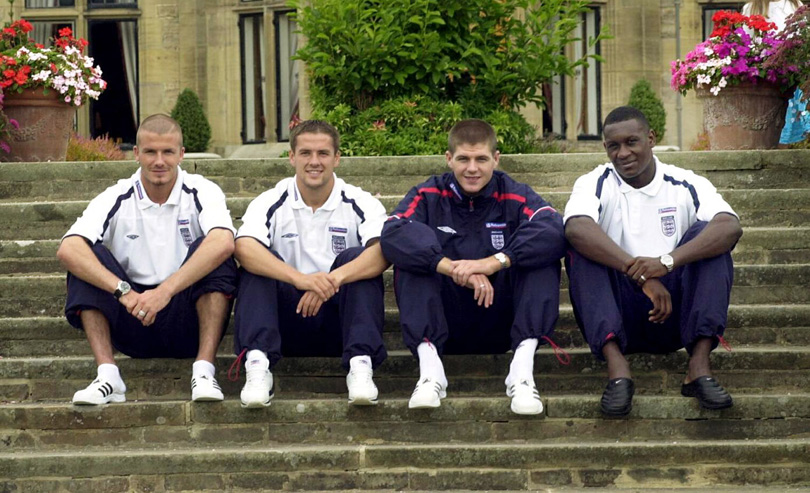
Their manager was Gerard Houllier and he followed us both closely after that. I was a Liverpool fan, so it was a no-brainer. It was a massive step up. I’d been at Leicester since the age of nine and in their first team since 17, so that’s all I’d ever known.
At Leicester it was, let’s say, pretty relaxed, while at Liverpool it was ultra-organised. You knew what you’d be doing every minute of every day. You’d be in meetings all the time and learn why some people and clubs are a step above, and why some players can play at a certain level consistently. It gives you a good idea of the work you have to do.
How much of a factor was linking up with Michael Owen in your decision to join Liverpool? Did you spend a lot of time together off the pitch? Donald Cross, via Facebook
It was great that he was there because we’d done really well for England U18s, developed a good understanding, and were beginning to take that through to the senior national team. To be able to do it on a regular basis at club level was obviously good for both of us.
[FFT: Why do you think you worked so well together?] Honesty, I don’t know – we just clicked as a partnership. It was back in the day when the big man-little man front two was in fashion. We were both very quick, I was physical, and he was prolific, so it just worked. We didn’t spend much time together away from the pitch, though.
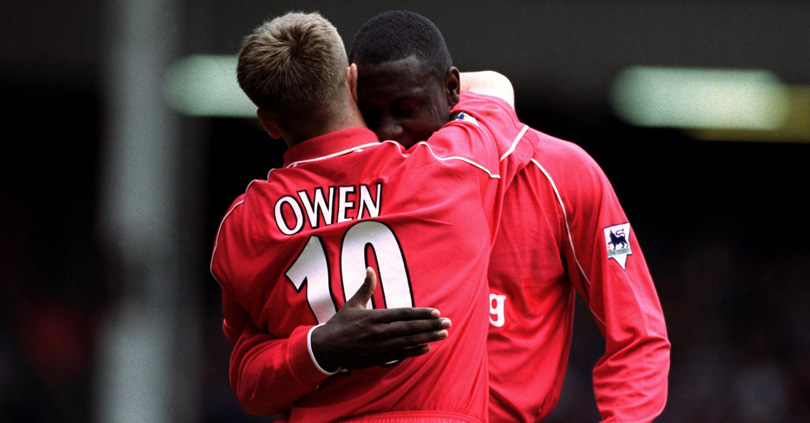
Your goal record was used as a stick to beat you with during your career – did the critics affect you? Lloyd Richardson, via Facebook
I never considered myself to be a prolific scorer, but I knew what else I brought to the table: I created a lot, could hold the ball up and understood my roles. Other players loved playing with me. You just have to take the good with the bad, but I admit it got to me after a while, simply because it was the only thing they had. It was all I ever heard.
Eventually you do get over it. I’ve told younger lads not to worry about criticism if it’s one person’s opinion, as you’ll have 10 who love you just around the corner.
You won three trophies in your first full season at Liverpool, but which was your favourite? Sue Bradley, Bath
Probably the FA Cup. Growing up, that competition was just so iconic and the only one you could really watch on TV. We didn’t deserve to beat Arsenal but we didn’t care – when you’ve got Michael, who’s so sharp in the box, you always have a chance. He was outstanding, and whenever he had half an opening, he’d either hit the target or score.
It’s funny, I can barely remember anything about the 2001 UEFA Cup Final [against Alaves] even though that was a massive game and eventually finished 5-4. I think that’s because we’d played a daft amount of matches that season and were on autopilot by then. All of the goals are a bit clearer, but nothing else.
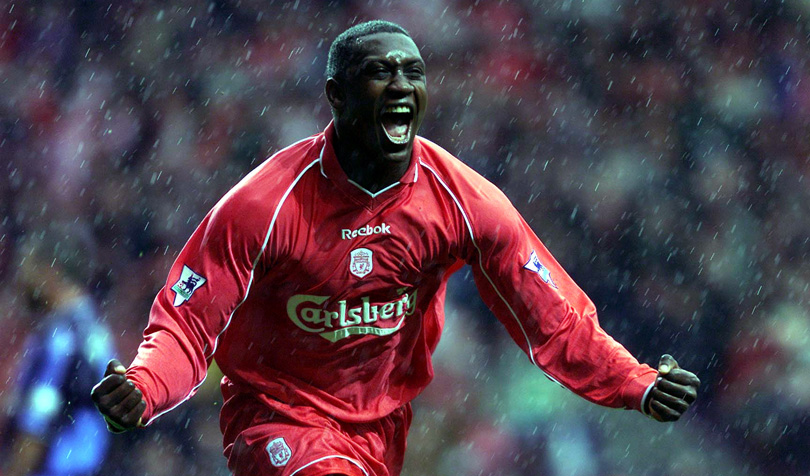
Germany 1-5 England. Discuss… Adam Day, London
[Smiles] It’s a historic moment, isn’t it? Sven-Goran Eriksson had been in charge for a few months, we’d lost the reverse game at Wembley 1-0, and were trailing again after six minutes in Munich. They had some chances to go 2-0 up, and at that point we were very worried. But we soon regrouped and Michael scored the equaliser, Stevie [Gerrard] got a second and we just kept going. My goal towards the end topped it off!
England had some incredible players in the Golden Generation – why didn’t we win anything? Nick Duncan, via Facebook
There was probably too much pressure on us, although we also didn’t have the best blend as a team. We had too many players in the same position and didn’t get the best out of Paul Scholes. There were always questions about where we should play him and where we should play Stevie. As individual players I think we were really good, but as a team I’d say perhaps not.
You seemed to be out of favour in the last couple of years of Eriksson’s reign. What happened? Were you angry? Ben King, Essex
I don’t hold a grudge against him now. Not really. It was probably a good thing for me, though, as it allowed me to step away from that environment a little bit. I wouldn’t say it was toxic, but it could be very, very intimidating at times – the spotlight was always on you. A lot of it is media-led, to be honest. I think it was a good time to pull away for a while, but I’d be lying if I said I didn’t miss it.
Sometimes I felt I should have been involved, especially during my first year at Birmingham when things were tough. I had gone from playing alongside the likes of Gary McAllister, Steven Gerrard and Danny Murphy – players who, when you made a run, would always see you – to Birmingham, where you could make seven runs and no one would spot you and make the pass. So I had to change my thought processes.
What’s the story behind your famous DJ goal celebration? Moses Barrett, via Facebook
I have a friend called Johnathan Joseph – aka DJ Spoony – who insisted that we invent a celebration together. The first season was the trumpet and the second was the DJ. He came up with that golf putt against Germany too, so you’ve got him to blame for them – he was like my personal choreographer.
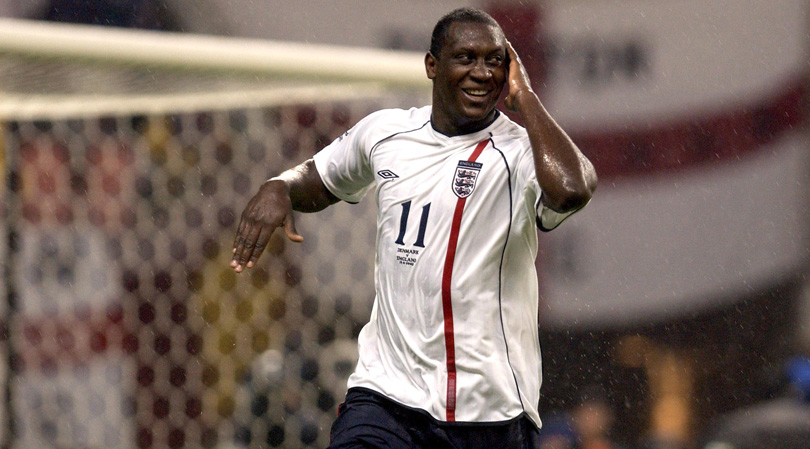
Leicester fans will always be grateful to you for handing over £100,000 to help save the club in 2002 – why did you get involved? Louise Tucker, Leicester
Without Leicester, there would’ve been no Emile Heskey. That’s how I looked at it and I really wanted to help the club. When Gary Lineker got the consortium together I thought, ‘Why not?’ and put some money in. Ultimately we wanted to stave off administration, and it helped. It’s safe to say they have had some good days since!
Why did you leave Liverpool for Birmingham in 2004? Weren’t you gutted? Philip Cain, via Facebook
I had a year left on my contract at Liverpool, but Rick Parry [then Liverpool CEO] told me that Djibril Cisse was coming in from Auxerre and I wouldn’t be playing. I told him that was OK and I’d stay and fight for my place. But he said, ‘No, Cisse has got to play.’
So I had to move on, really. They accepted a bid from Birmingham and that was that. But I loved my time with Liverpool – they were great times, fun times and emotional times.
When you’re a kid, you get into sports to win trophies and medals. I was lucky enough to do it with Leicester, and then take it to the next level at Liverpool. The highest we ever finished in the Premier League was 2nd but we won all of those cups, which was great – I couldn’t have asked for any more.
You played alongside Robbie Savage at both Leicester and Birmingham – be honest, is he really as irritating as he seems? Neil Baker, via Facebook
Sav is Sav, right? But you know what, he was a decent player and exactly the kind of guy a team like Birmingham needed. He would wind other teams up to knock them off their stride. He was fit, ran around making a nuisance of himself, and every now and then would pop up with a free-kick or something. He didn’t wind me up off the pitch, though. He was just funny and good to have around. We definitely missed him when he left Birmingham.
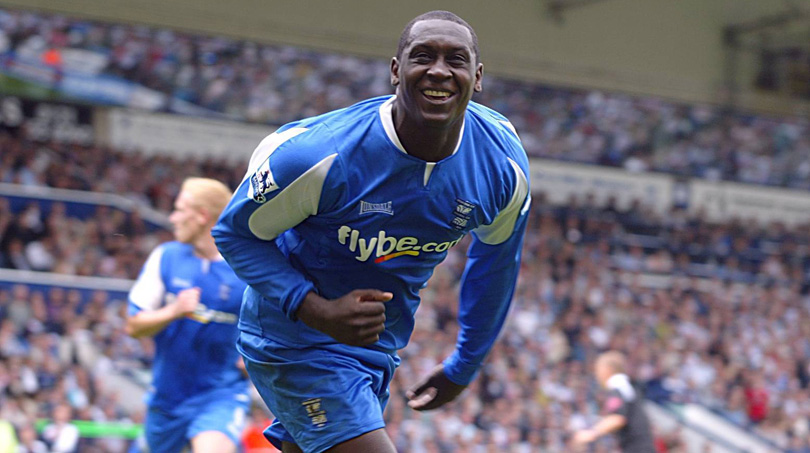
Did you join Aston Villa because of Martin O’Neill? Were you not worried about upsetting Blues fans? Jamie Berger, Luton
Martin tried to sign me for Celtic when I was at Liverpool, and also wanted me at Villa while I was at Birmingham, but I couldn’t have done it that way around. I didn’t fancy the aggro, but when I did eventually join Villa, Birmingham’s fans treated me absolutely fine. Sometimes you’ll hear Villa and Blues fans arguing about who I was better for!
I left Birmingham for Wigan because I was impressed with what Paul Jewell was doing, but I ended up back with the gaffer at Villa. It was great to work with him again and he hadn’t changed a bit.
I remember a game when you were at Aston Villa where you absolutely lost it with referee Mike Jones. Why were you so incensed? It seemed out of character... Alex Moore, via Facebook
It was against Wigan [in 2011]. Imagine me elbowing you in the side of the head every five minutes – eventually, you’re going to have had enough! It was crazy. When a referee isn’t seeing it either and just telling you to get on with it, what’s the point? There was no point him being there and no point me being there, too.
I lost it at half-time, got taken off and went home before the end of the game. But you have days like those – no one’s going to be a saint every day, are they?
You were famously first on the scene to congratulate David Beckham after his last-gasp free-kick against Greece in 2001 (right). Intentional, of course? Tom Casey, via Facebook
[Laughs] Of course! I remember it well. I’ve never seen a game where someone controls it like that from the right wing. He was phenomenal and on top of his game. I was like, ‘How has he managed that?’. Maybe it was because everyone looked for him subconsciously – muscle memory, give it to Becks. People forget how a good player he was.
Who’s your favourite strike partner of all time? Roxanne Griffith, via Twitter
It has to be Michael [Owen]. We got on really well on the pitch and built up an understanding that was a bit different to everyone else’s. I also enjoyed playing with Nicolas Anelka at Liverpool. He was such a good player. Why didn’t we sign him permanently from PSG? I can’t say for sure, because I don’t know. We went and got El Hadji Diouf from Lens in the end, didn’t we…
Is it true Steve McClaren recalled you in 2007 because Owen asked for you? Luke Weaver, Worcester
I don’t think he specifically asked for me. He rang me up, and I wasn’t even going to answer as I didn’t know who it was. ‘It’s Steve…’ No idea. ‘Steve McClaren.’ He said he’d talked to Michael and they thought it was a good idea that I came back. He’d called up a few other players, though, and I thought it was a bit weird that he was phoning me now. But I was happy and wasn’t going to argue!
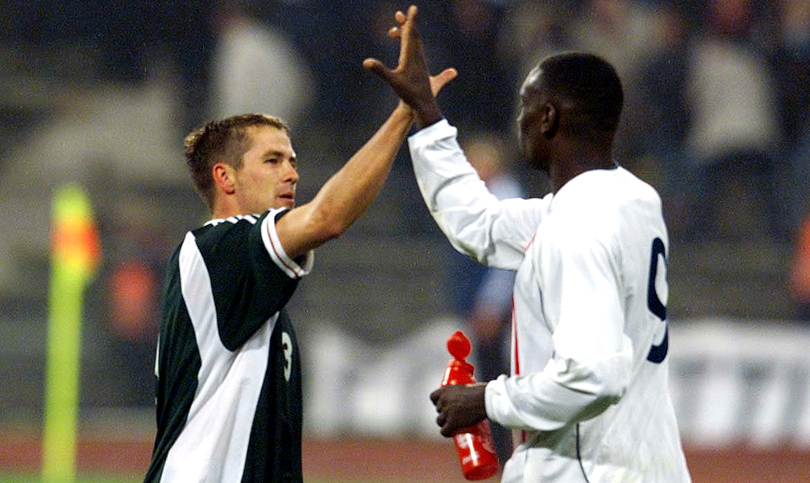
You had an international resurgence under Fabio Capello. Why? What did you make of him? David Ross, via Facebook
Capello was good. A lot of people didn’t like him as he was strict. I didn’t mind it. I quite like rules – you know where you stand. But things within football were changing at that time. People wanted to dictate things, especially players, and he wasn’t having that. Players don’t like change and they’re devious.
No one was hostile towards him – not that I saw, at least – but I never engaged with any of that stuff. The media reported there was a squad meeting at the 2010 World Cup and I was like, ‘Where was my invite?!’ I just didn’t get involved in those politics.
Why did everything go so badly wrong for England at the 2010 World Cup? Wayne Howells, via Twitter
I honestly don’t know. We had a great, purpose-made facility, although people moaned that it was too far away from the big cities. The training pitches were good, we had a great gym – what more do you want? I guess it could be boring if you don’t like your own company, but I didn’t mind that.
I had personal friends who I had to get away from sometimes, as they sapped my energy and wanted to be around me all the time. I needed five minutes alone! It didn’t bother me. I’m one of four children so being on my own was quite nice sometimes.
How do you assess your international career now? Good times? Harry Lavender, Guildford
I loved every minute of it. I wish I could have won a trophy, but I don’t think we were quite together enough as a group, and I mean that in both senses: in terms of the time we spent together and how united we were as a group. There were definitely club divides – you’d have five lads from Manchester United, five more from Liverpool, and a sprinkling from the other clubs. I had it both ways, though.
When I was at Leicester, I’d basically be sat on my own, but once I’d joined Liverpool I’d hang out with the rest of their lads. I didn’t return until I was at Wigan, where I was with Chris Kirkland, so I sat with him. That’s how it was. It was never hostile, just a natural divide. You’d have a look around and sit with the lads you knew. You’d stick together.
Why did you sign for Newcastle Jets? Omar Craig, via Facebook
Their manager contacted me through Robbie Fowler, who’d already played in Australia, and asked if I’d be interested in going out there. I felt I’d done enough in the Premier League by that point – it had been 17 years and started to feel like a bit of a goldfish bowl. I wanted to sample something else and it was great. I didn’t know what to expect there, but everyone took to me – the fans and the other players were fantastic.
Aussies have such a different lifestyle that football is almost a sideshow. We’d train at 7.30am due to the heat, before having the rest of the day to ourselves. One lad cut his foot open while surfing and was out for a month. I said, ‘Mate, you can’t do that. This is your livelihood!’
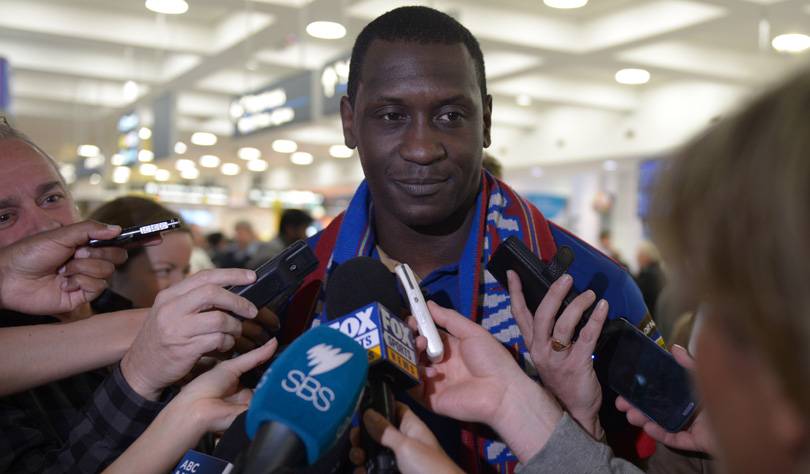
HeskeyCam: that was weird, wasn’t it? Danny Lyons, via Facebook
It was, yeah! I knew they were doing it beforehand but once I was busy playing the game, I didn’t think about it. I was just hoping I didn’t forget and pick my nose or something. Other than that, I didn’t get much attention over there. It was great: I could walk around on the streets and no one noticed me.
Did you encounter any scary wildlife during your time down under? Mike Bird, via Twitter
Living in the city meant you didn’t really see anything, except maybe the odd big spider. If you’d gone further north you’d definitely see everything: jellyfish, little spiders that can kill you, poisonous frogs.
We trained on a university campus and the complex had loads of bushes filled with brown snakes and things like that. They’re actually pretty dangerous, so it was usually best to just not think about it too much.
What was it like having to call Neil Lennon ‘gaffer’ at Bolton? Gary Allen, via Facebook
Strange at first. It was funny, as I used to just call him ‘mate’. He was like, ‘You can’t call me mate’ and threatened to fine me every time I did it. It was good working for him and I could see traits from Martin O’Neill – some of the stuff he said and how he motivated players.
I went to Bolton halfway through the 2014-15 season and he was fantastic. Once you start taking resources away, what do you expect? You’re fighting an uphill battle. Some of the players were young, basically living hand to mouth and having to put in a transfer request just to get paid. He dealt with it, though.
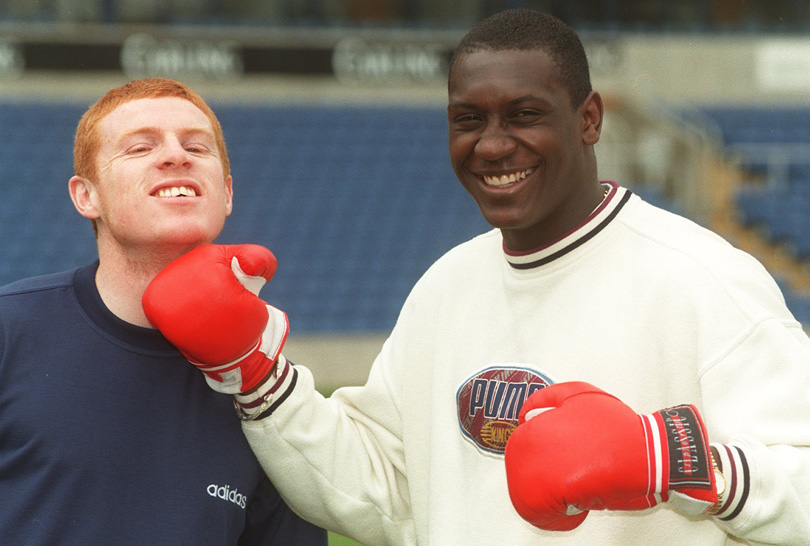
Would you like to become a coach or manager in the future? Becky Perry, via Facebook
I do enjoy mentoring players. I did a bit at Bolton. I’ve done the first part of my coaching badges, but there’s no point doing any more until someone wants to work with you. What am I going to be, the most qualified non-coach? I’ve got my Level 2, then I can go and do my B. But you can do it while you’re at a club.
How do you feel about the continuing lack of black coaches in the game? Matt Mason, via Facebook
I feel we’ve not moved further forward since I started out in the game when it comes to managers, coaches or other senior positions within clubs. Do I think that will change? Probably not. Nothing anyone has done so far has convinced me it’s going to change. I see the same number of black managers. What can we do? We like to sit down and discuss things, but I don’t know.
If you could change one decision from your career, what would it be? Sophie Webb, via Twitter
Probably staying at Liverpool for longer, as they won the Champions League the following season!
Mark this chat-up line out of 10: ‘Do you know Heskey? Because I’d love to take you out for Emile…’ Joel Hunter, London
Brilliant! I’d give that 12 out of 10.
This feature originally appeared in the November 2018 issue of FourFourTwo. Subscribe!







